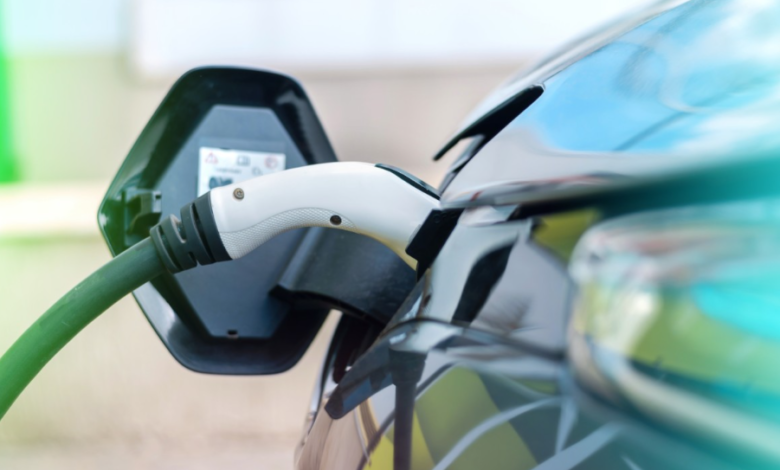Electric Vehicle Revolution In Modern Mobility

In the past decade, transportation has experienced a dramatic shift with the rise of the electric vehicle. More than just a new trend, it represents a necessary solution to the environmental, economic, and technological challenges of our times. As fossil fuel resources decline and climate change accelerates, the world is turning to cleaner, smarter alternatives. The electric vehicle is leading this transition with remarkable speed.
Understanding Electric Vehicles
An electric vehicle runs on electric power rather than relying solely on fossil fuels. These vehicles use electric motors and draw power from rechargeable battery packs. There are several types including battery electric vehicles (BEVs), hybrid electric vehicles (HEVs), and plug-in hybrid electric vehicles (PHEVs). Unlike traditional cars, these vehicles produce minimal emissions and operate more quietly and efficiently.
Advantages Of Electric Vehicles
The electric vehicle offers a wide range of advantages for consumers and the environment. First and foremost, it significantly reduces carbon dioxide and greenhouse gas emissions. This plays a major role in tackling global warming and improving air quality in urban areas. Secondly, the maintenance costs are much lower since electric vehicles have fewer moving parts compared to internal combustion engine cars. No oil changes, fewer filter replacements, and simpler powertrain systems make them economically attractive in the long run.
Cost Considerations For Buyers
Although the initial price of an electric vehicle can be higher than its gasoline counterpart, the overall cost of ownership is often lower. Charging an EV is cheaper than refueling with petrol or diesel. In addition, governments across the globe are offering subsidies, rebates, and tax exemptions to encourage EV adoption. Insurance premiums and road taxes are also typically lower for these vehicles, further enhancing their cost-effectiveness.
Charging Infrastructure Development
One of the major concerns around electric vehicle adoption is charging convenience. However, the number of public and private charging stations is increasing rapidly. From fast-charging hubs along highways to home-installed charging units, infrastructure is catching up with the growing demand. Charging networks are now integrated with smart apps that help users locate available stations, monitor charging status, and even schedule overnight charging.
Environmental Impact And Benefits
The shift from conventional fuel-based cars to the electric vehicle has a direct impact on environmental conservation. By using clean electricity, especially from renewable sources like solar or wind, EVs help lower the overall carbon footprint of transportation. They also reduce noise pollution, contributing to healthier and more livable cities. Moreover, electric vehicles align with global commitments to sustainability and eco-conscious development.
Global Growth And Trends
Worldwide, the electric vehicle market is expanding rapidly. Countries like China, the United States, Norway, and Germany are leading in EV sales and infrastructure development. Major car manufacturers are investing heavily in electric vehicle technologies, with many pledging to go all-electric in the coming years. This global momentum suggests that EVs will soon dominate the automotive industry, transforming how people travel.
See also: Automation in Everyday Life: How Smart Technology Is Streamlining Daily Tasks
Role Of Technology In Enhancing EV Experience
Advancements in technology are making the electric vehicle smarter and more user-friendly. Innovations in lithium-ion battery technology have resulted in longer ranges and shorter charging times. Modern EVs come with intelligent features such as regenerative braking, AI-assisted driving, real-time diagnostics, and app-controlled systems. These enhancements not only improve performance but also increase safety and convenience for users.
Barriers To Adoption And Future Challenges
Despite all the progress, some barriers still exist. Limited charging stations in rural or underdeveloped areas, concerns over battery disposal, and a lack of consumer awareness continue to hinder mass adoption. Additionally, raw material extraction for batteries poses ethical and environmental concerns. These issues require attention from manufacturers, governments, and researchers to ensure responsible and sustainable electric vehicle expansion.
Government Incentives And Policy Support
Governmental bodies play a crucial role in boosting electric vehicle adoption. Incentives such as zero-registration fees, toll exemptions, and free public parking are common in EV-friendly cities. Policymakers are also setting targets to ban the sale of new petrol and diesel cars within the next decade. These initiatives are encouraging both producers and consumers to shift toward a cleaner future.
Integration With Renewable Energy
The true potential of the electric vehicle is realized when it is paired with renewable energy sources. When EVs are charged using solar or wind power, they become almost entirely emission-free. Some countries are exploring vehicle-to-grid (V2G) technologies where EVs act as mobile batteries, storing and supplying energy during peak demand. This adds an entirely new layer of efficiency to the energy and transportation ecosystem.
EVs And Smart Cities
In smart city development, electric vehicles are central to clean and efficient urban planning. Many cities are incorporating EVs into public transport fleets, delivery systems, and shared mobility platforms. Data-driven traffic electric vehicle management systems, smart parking solutions, and eco-zones are being designed around the electric vehicle model. This transformation will create cities that are not only cleaner but also more technologically advanced and livable.
Consumer Awareness And Education
To support the electric vehicle transition, consumer education is essential. Potential buyers often hesitate due to myths or lack of knowledge about range, charging, and maintenance. Awareness campaigns, educational workshops, and easy access to test drives can help build trust and drive adoption. As more people experience the benefits of EVs firsthand, demand will continue to rise.
Conclusion
The electric vehicle is more than a transportation alternative; it is a symbol of a sustainable future. With reduced emissions, advanced technology, and cost-saving benefits, EVs are redefining mobility in the 21st century. As infrastructure improves and public awareness grows, they are expected to become the default choice for responsible, smart travel. Governments, industries, and consumers must collaborate to ensure that the shift to electric mobility is swift, efficient, and inclusive.





